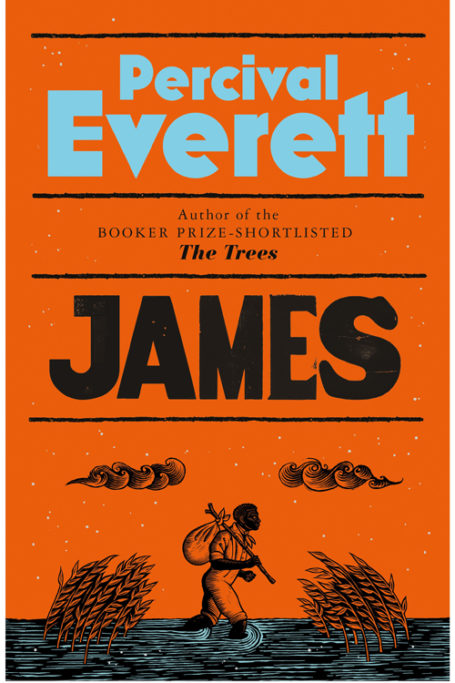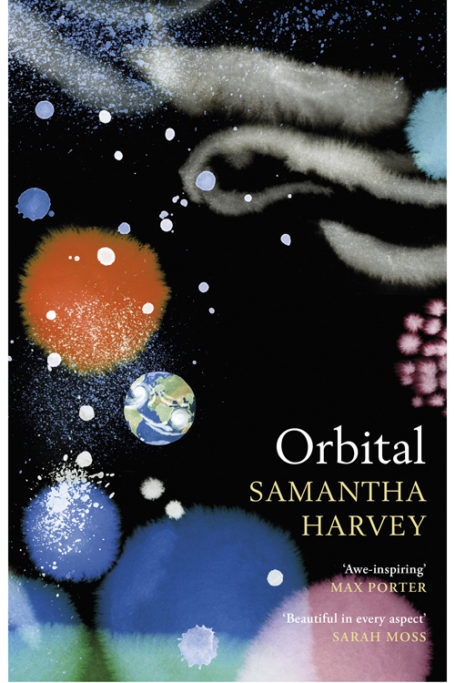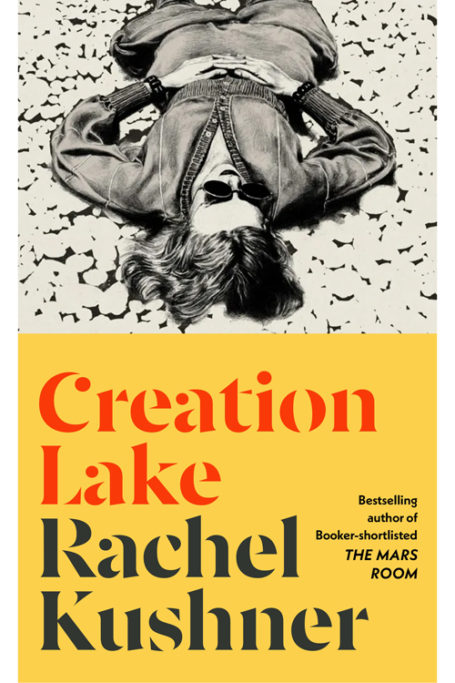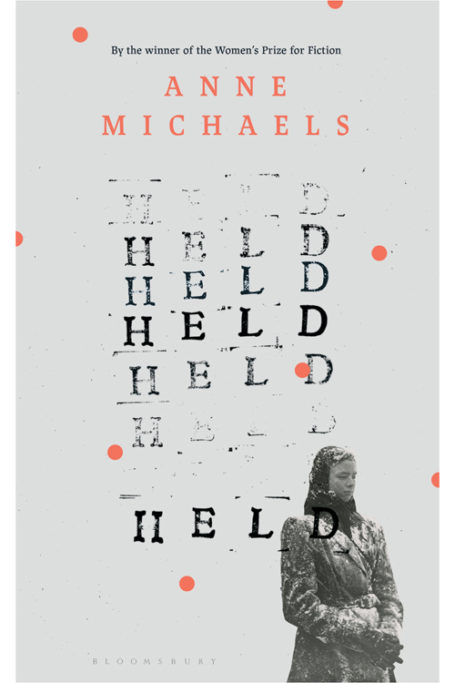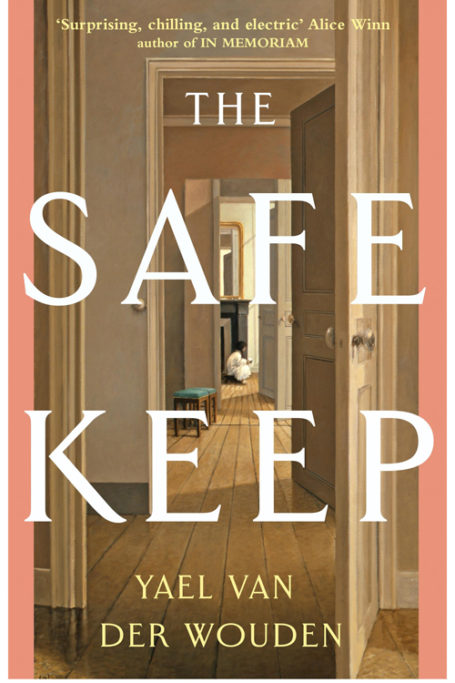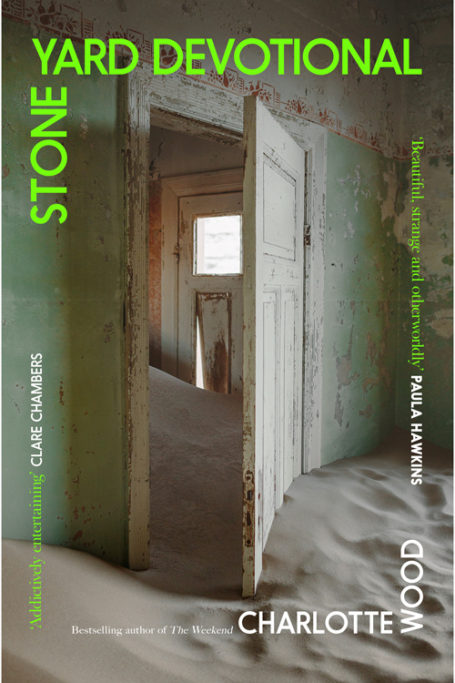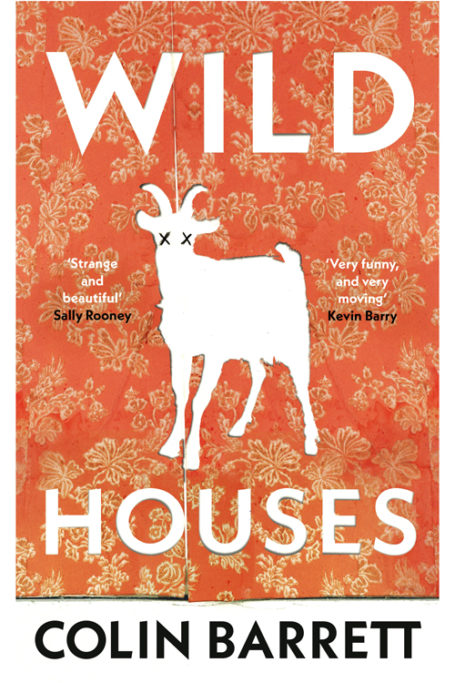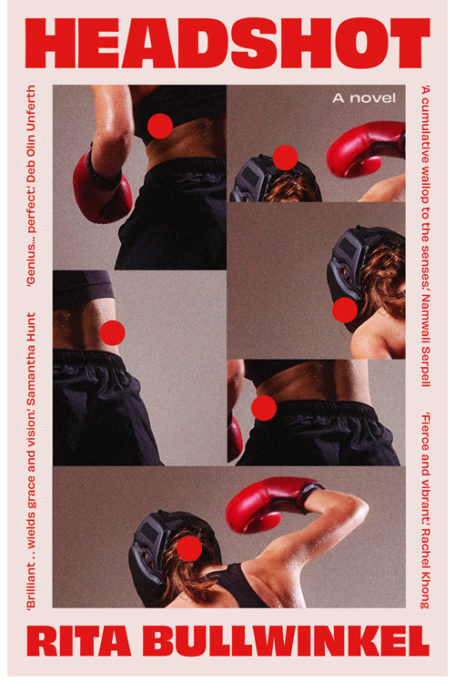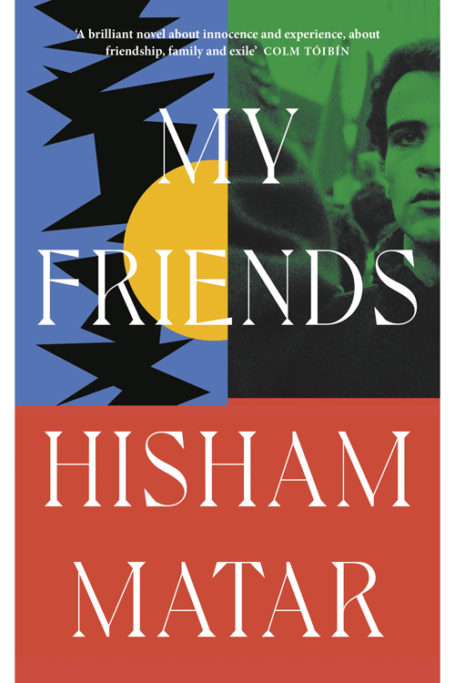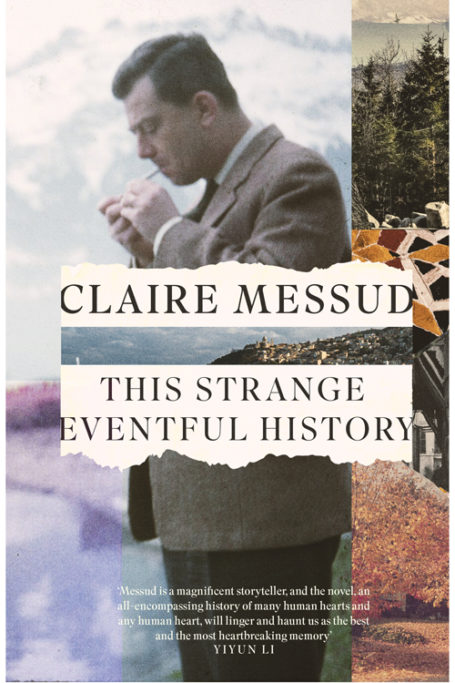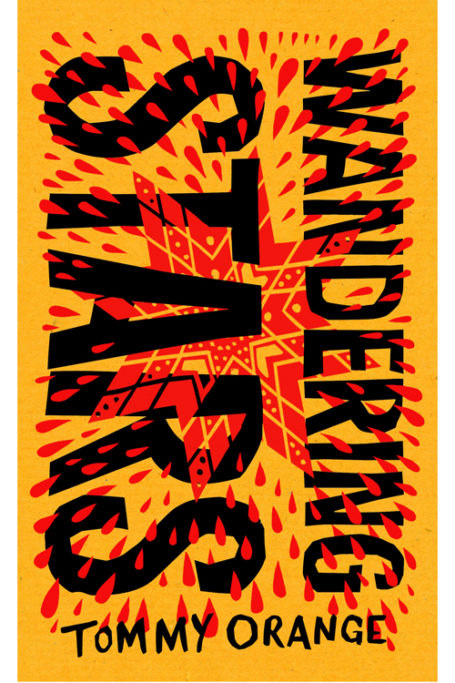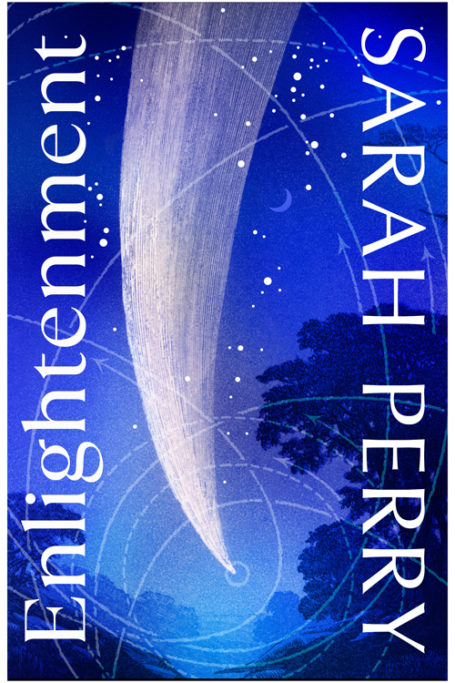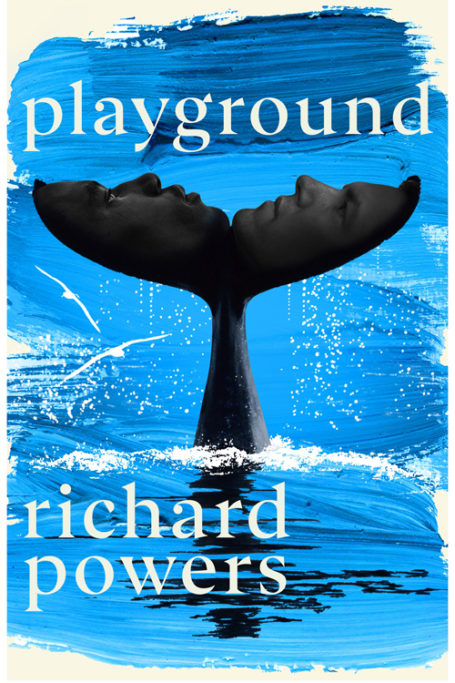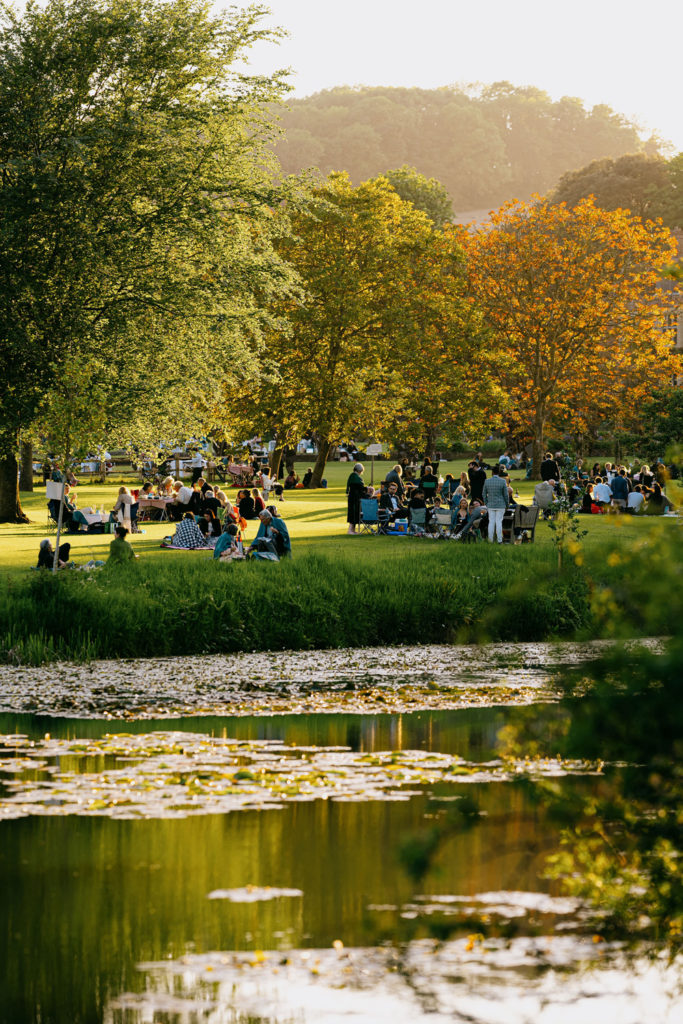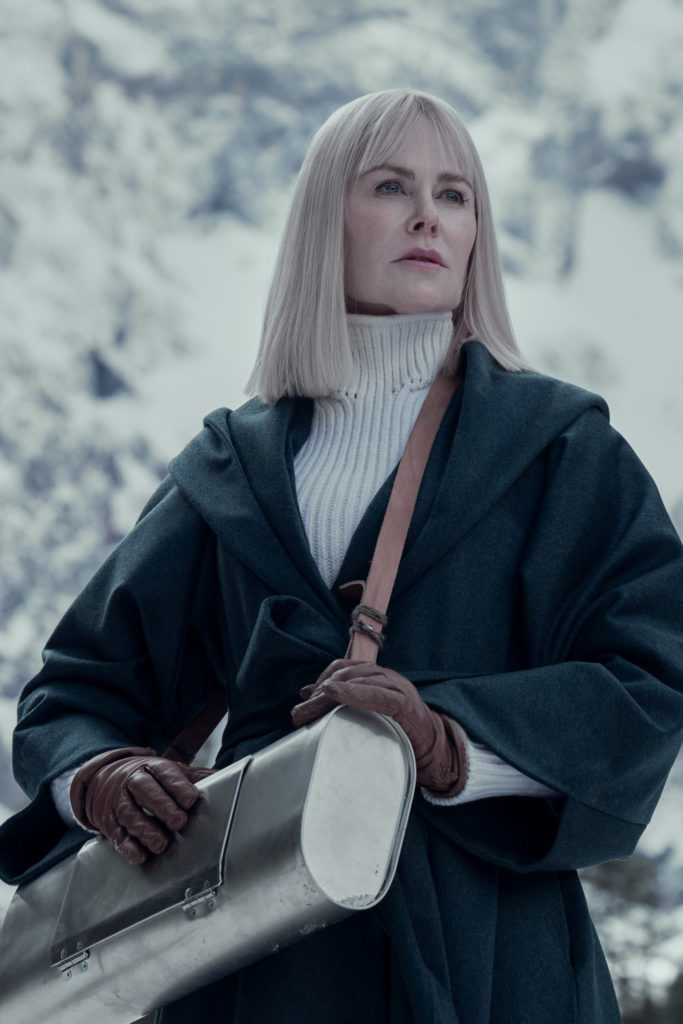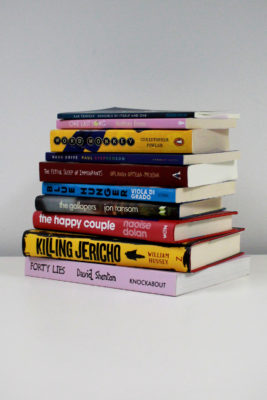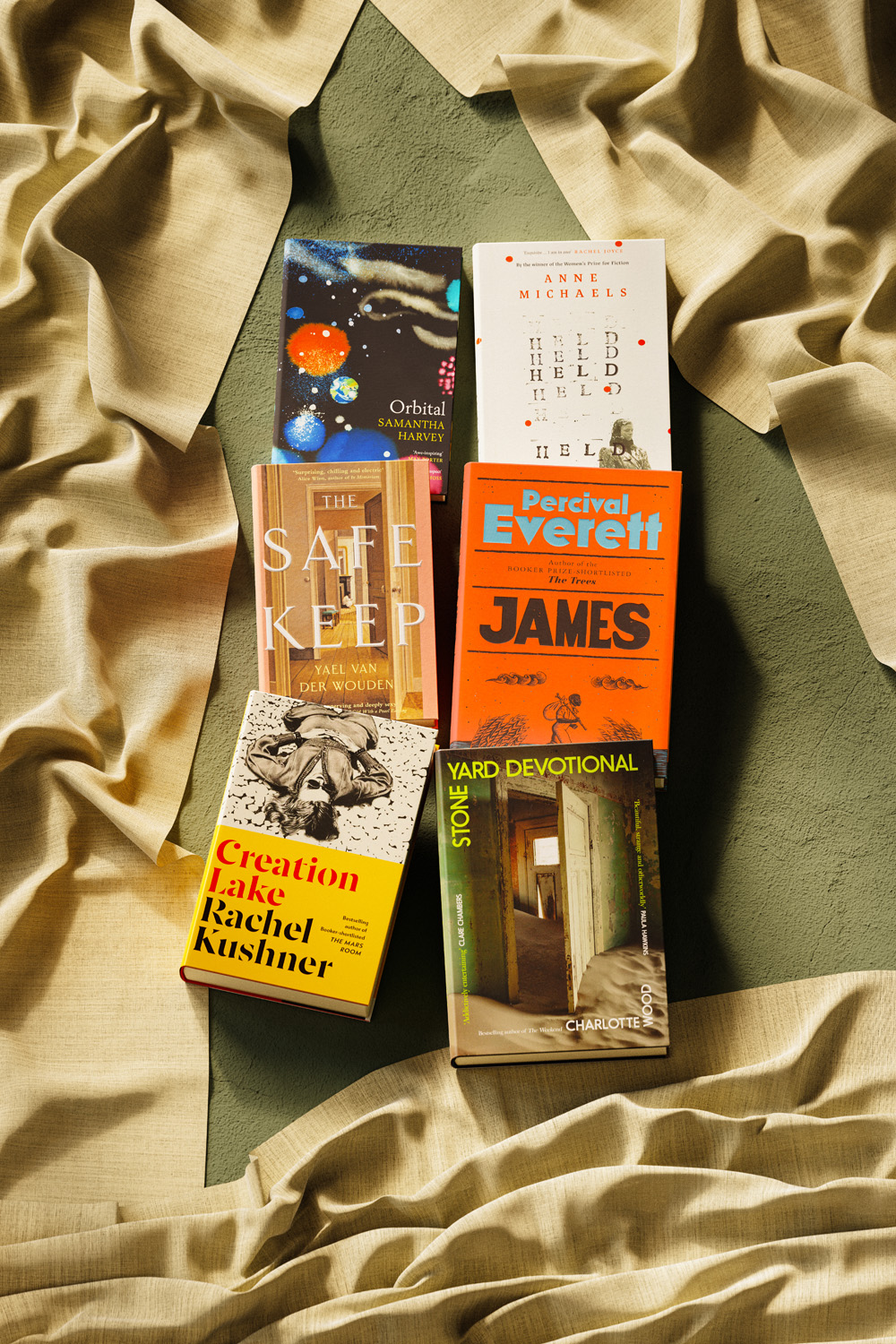
Inside The 2024 Booker Shortlist
By
7 months ago
Add these books to your TBR
Last night at a ceremony in Somerset House, London, six authors were awarded £2,500, a specially bound edition of their books, and a place on the 2024 Booker Prize Shortlist. For half of them, it’s the first time their work has ever been recognised by the prestigious organisation, while the other half have made it to the long or shortlist before, but have never gotten their hands on the ultimate prize. Here we delve into the 2024 Shortlist, and take a look back at the novels commended on the Longlist.

© Booker Prize Foundation
The Booker Prize Shortlist 2024
Percival Everett, Rachel Kushner, Samantha Harvey, Anne Michaels, Charlotte Wood and Yael van der Wouden are all the proud authors of a Booker Prize shortlisted novel. If that list is striking to you, here’s why: only one man has made it to the final round, joined by a whopping five women, the largest number of women in the Prize’s 55-year history.
It’s a stark contrast to the 2023 Shortlist, which included two women and four men, with three of those men called Paul. Likewise, we’ve come a long way since 1991, when the prize famously commended six men on its Shortlist despite 60 percent of novels that year being published by women, prompting the creation of the Women’s Prize five years later.
More significant facts include how Yael van der Wouden is the first ever Dutch writer to be shortlisted (with her debut novel, no less), while Charlotte Wood is the first Australian writer to make the shortlist in the last 10 years. They join two Americans, one Canadian and one British writer.
All of the shortlisted works are ‘books that made us want to keep on reading,’ says Chair of judges Edmund de Waal, ‘to ring up friends and tell them about them, novels that inspired us to write, to score music, and even – in my case – to go back to my wheel and make pots.’
The Booker Prize 2024 Shortlist is:
- James by Percival Everett (American)
- Orbital by Samantha Harvey (British)
- Creation Lake by Rachel Kushner (American)
- Held by Anne Michaels (Canadian)
- The Safekeep by Yael van der Wouden
- Stone Yard Devotional by Charlotte Wood
‘I am enormously proud of this shortlist of six books that have lived with us,’ de Waal says. ‘We have spent months sifting, challenging, questioning – stopped in our tracks by the power of the contemporary fiction that we have been privileged to read. And here are the books that we need you to read. Great novels can change the reader. They face up to truths and face you in their turn.
‘If that sounds excessive it reflects the urgency that animates these novels,’ de Waal continues. ‘Here is storytelling in which people confront the world in all its instability and complexity. The fault lines of our times are here. Borders and time zones and generations are crossed and explored, conflicts of identity, race and sexuality are brought into renewed focus through memorable voices. The people who come alive here are damaged in ways that we come to know and respect, and we come to care passionately about their histories and relationships.
‘My copies of these novels are dog-eared, scribbled in. They have been carried everywhere – surely the necessary measure of a seriously good novel,’ de Waal says. ‘Our final meeting to choose this shortlist together was punctuated by delight at them.’

© Booker Prize Foundation
The Longlist
As always, 13 books have made the Booker Prize 2024 Longlist, whittled down from a whopping 156 eligible books published between 1 October 2023 and 30 September 2024 submitted to the prize. The Longlist includes three debut novelists alongside six writers previously nominated for the prize, with eight women and five men commended for their work.
The Booker Prize 2024 Longlist is as follows:
- Wild Houses by Colin Barrett
- Headshot by Rita Bullwinkel
- James by Percival Everett
- Orbital by Samantha Harvey
- Creation Lake by Rachel Kushner
- My Friends by Hisham Matar
- This Strange Eventful History by Claire Messud
- Held by Anne Michaels
- Wandering Stars by Tommy Orange
- Enlightenment by Sarah Perry
- Playground by Richard Powers
- The Safekeep by Yael van der Wouden
- Stone Yard Devotional by Charlotte Wood
Starting with the Shortlist, here are all of the books commended by this year’s Booker Prize judging panel.
James by Percival Everett
‘A masterful, revisionist work that immerses the reader in the brutality of slavery, juxtaposed with a movingly persistent humanity. Through lyrical, richly textured prose, Everett crafts a captivating response to Mark Twain’s classic, Huckleberry Finn, that is both a bold exploration of a dark chapter in history and a testament to the resilience of the human spirit. With its virtuosic command of language and moral urgency, James stands as a towering achievement that confronts the past while holding out hope for a progressive future, cementing Everett’s deserved reputation as a literary sensation.’
‘Mark Twain’s The Adventures of Huckleberry Finn is the source of my novel,’ Everett says. ‘I hope that I have written the novel that Twain did not and also could not have written. I do not view the work as a corrective, but rather I see myself in conversation with Twain.’
Orbital by Samantha Harvey
‘Samantha Harvey’s compact yet beautifully expansive novel invites us to observe Earth’s splendour from the drifting perspective of six astronauts aboard the International Space Station as they navigate bereavement, loneliness and mission fatigue. Moving from the claustrophobia of their cabins to the infinitude of space, from their wide-ranging memories to their careful attention to their tasks, from searching metaphysical inquiry to the spectacle of the natural world, Orbital offers us a love letter to our planet as well as a deeply moving acknowledgement of the individual and collective value of every human life.’
‘I wanted to write about our human occupation of low Earth orbit for the last quarter of a century – not as sci-fi but as realism,’ Harvey says. ‘Could I evoke the beauty of that vantage point with the care of a nature writer? Could I write about amazement? Could I pull off a sort of space pastoral? These were the challenges I set myself.’
Creation Lake by Rachel Kushner
‘Sadie Smith – not her real name – is an FBI agent turned spy-for-hire, whose latest mission is to infiltrate a commune of eco-activists in rural France. She’s an extraordinary creation: sharp-minded, iron-willed, accustomed to moving fast and breaking things. As she investigates the group, she hacks into emails from their guru, a shadowy eccentric who has withdrawn from modernity into the ancient caves that dot the landscape; he has some beguiling ideas about the role of Neanderthals through history. What’s so electrifying about this novel is the way it knits contemporary politics and power with a deep counter-history of human civilisation. We found the prose thrilling, the ideas exciting, the book as a whole a profound and irresistible page-turner.’
‘I had long wanted to tell a story about a group of young people who decamp from Paris to a rural outpost in France, where they are set on a collision course with the French state,’ Kushner says. ‘At the same time, I became interested in prehistory, both what can be known about ancient people and what the longing to know actually is, a sense that we have taken a wrong turn, that our ancestors hid messages from us that we don’t know how to read.’
Held by Anne Michaels
‘The first few pages of this brief kaleidoscopic novel from the author of Fugitive Pieces may seem forbidding, yet every member of the judging panel was transported by this book. Michaels, a poet, is utterly uncompromising in her vision and execution. She is writing about war, trauma, science, faith and above all love and human connection; her canvas is a century of busy history, but she connects the fragments of her story through theme and image rather than character and chronology, intense moments surrounded by great gaps of space and time. Appropriately for a novel about consciousness, it seems to alter and expand your state of mind. Reading it is a unique experience.’
‘Every day writing this book I asked myself: in these urgent times, what voice might be small enough to be heard; what do we need now?’ Michaels says. ‘We measure history by events and actions, but this book wants to assert a different measure for history, the real and powerful effect of our inner lives – what we believe, what we value, what we love, what we aspire to.’
The Safekeep by Yael van der Wouden
‘Set in the early 1960s in the Netherlands in an isolated house, The Safekeep draws us into a world as carefully calibrated as a Dutch still-life. Every piece of crockery or silverware is accounted for here. Isa is the protagonist – a withdrawn figure who is safeguarding this inheritance. When her brother brings his new girlfriend Eva into this household the energy field changes as we sense boundaries of possession being crossed, other histories coming into the light. We loved this debut novel for its remarkable inhabitation of obsession. It navigates an emotional landscape of loss and return in an unforgettable way.’
The Safekeep was inspired by ‘a short story I once wrote about three siblings out for dinner and the additional girlfriend everyone hates; a fascination with how the Dutch narrativise national histories; wanting to explore desire as the flipside of repulsion,’ van der Wouden says. ‘The way it happened was like this: I was on the way back from a funeral, looking out over flat Dutch fields, and somewhere between grief and a need to escape the idea bloomed, of a house, a woman and a stranger.’
Stone Yard Devotional by Charlotte Wood
‘Sometimes a visitor becomes a resident, and a temporary retreat becomes permanent. This happens to the narrator in Stone Yard Devotional – a woman with seemingly solid connections to the world who changes her life and settles into a monastery in rural Australia. Yet no shelter is impermeable. The past, in the form of the returning bones of an old acquaintance, comes knocking at her door; the present, in the forms of a global pandemic and a local plague of mice and rats, demands her attention. The novel thrilled and chilled the judges – it’s a book we can’t wait to put into the hands of readers.’
‘Stone Yard Devotional grew from elements of my own life and childhood merging with an entirely invented story about an enclosed religious community,’ Wood says. ‘Writing it during pandemic lockdowns, followed by a serious illness – and the way these twin upheavals demolished so many of our consoling certainties – gave me an urgent instinct to shed anything inessential in my work. I wanted nothing trivial, nothing insincere in this book.’
And now for the Longlist.
Wild Houses by Colin Barrett
‘With two collections behind him, Barrett is well established as a master both of the short story and the sentence; his debut novel confirms and extends all his promise. Wild Houses is a propulsive, darkly comic and superlatively written account of frustration and misadventure in a small Irish town. Nicky is a self-reliant 17-year-old whose dreams of escape are slowly coming into focus when her hapless boyfriend Doll gets taken hostage by local goons over a drug debt; misfit Dev is reluctantly embroiled. The connections between the cast and the past tragedies that have forged them are expertly revealed in a slow-burn study of character and fate that’s also an edge-of-your-seat thriller. Violence and farce mingle in a novel that feels as sharp, funny and bitingly bittersweet as life.’
Headshot by Rita Bullwinkel
‘A gripping and gutsy depiction of a young women’s boxing tournament in Nevada. In a compelling series of interconnected snapshots, Bullwinkel weaves a tapestry around several diverse, steely characters, each with their own unique backstories, motivations and perspectives. With great flair and candid detail, the author elevates the gritty physical realities of sport to a profound examination of identity, destiny and family dynamics, and of the transitory yet intense significance of human experience, lending the book a depth far beyond most sports fiction. An unflinching debut.’
My Friends by Hisham Matar
‘Two young Libyan students meet at university in Edinburgh and make a decision to join the protests outside the Libyan embassy in London. Both are wounded when they are fired on. This powerful story of exile charts the aftermath of this moment as the friends navigate a world where they cannot rest, where both the idea and the reality of homeland is contingent and dangerous. My Friends is both a complex and unsentimental meditation on what friendship means and a searingly moving exploration of how exile impacts those who are forced to live in this state of loss. It is a book that we loved for its spareness of language and its deeply affecting storytelling.’
This Strange Eventful History by Claire Messud
‘The novel opens in June 1940 when Paris falls to the Germans, a moment that, like many important historical events, casts a centrifugal force on people’s lives. The compelling narrative follows three generations of a Franco-Algerian family in their migrations around the world, from Algeria to the US, Cuba, Canada, Argentina, Australia, and France. Epic in its scale, while intimately rooted in each character’s internal landscape, the novel reminds us how literature can be expansive and timeless.’
Wandering Stars by Tommy Orange
‘This powerful epic entwines the stories of a diverse cast of characters, each grappling with the weight of history, identity and trauma. Through well-crafted prose and deftly drawn perspectives, Tommy Orange paints a vivid portrait of the Native American experience – both the pain of displacement and the resilience of those who continue ancestral traditions. Spanning centuries, the novel explores universal themes of family, addiction and the search for belonging in a society that often fails to recognise the value of its Indigenous people. Wandering Stars is a stunning achievement, a literary tour de force that demands attention.’
Enlightenment by Sarah Perry
‘There are some novels which set out to take time, that have a certain confidence in their pacing. Enlightenment does this splendidly. This long and quiet book brings together a compression of place – a small town in 1990s Essex – and an exhilarating exploration of the heavens, comets, faith, ghosts, love. The novel takes its main characters – a middle-aged novelist and reporter for a local paper and the 17-year-old daughter of the local pastor – and weaves a novel of great ambition. This is a book of deep pleasures, full of passion for the life of ideas, richly and satisfyingly written.’
Playground by Richard Powers
‘Economic motives quarrel with environmental ones and artificial intelligence poses threats as well as promises as the residents of a Polynesian island prepare to vote on a proposed seasteading project led by an unidentified American billionaire. This is a characterful, capacious and engaging novel, distilling subjects as diverse as oceanography, climate change, the legacies of colonialism and the arc of a lifelong friendship into an exhilaratingly entangled narrative in which Powers’ unparalleled gifts for revealing the magic and mystery of the natural world are on full display.’
Six of the authors are American, including the first Native American author to ever be nominated. Meanwhile, two of the longlisted authors are British – Samantha Harvey and Sarah Perry – while Hisham Matar is British/Libyan and Claire Messud, despite holding American, Canadian and Australian passports, was named on Granta’s 2003 list of Best Young British Novelists.
The Longlist spans a range of nations and situations, from a US boxing ring to an Australian convent, outer space to the deep underground.
‘After seven months and 156 novels, it is a great moment to be able to hand over this glorious longlist of urgent, resonant books for the Booker Prize 2024: a cohort of global voices, strong voices and new voices,’ says Edmund de Waal, chair of the 2024 judging panel. ‘One of the true markers of the novels that we have chosen is that we feel they are necessary books, fiction that has made a space in our hearts and that we want to see find a place in the reading lives of many others. To reach the end of a novel and to be deeply moved and be unable to work out quite how that has happened is a great gift.
‘This is timely and timeless fiction, in which there is much at stake,’ he adds. ‘Here are books that unfold with quietness and stealth, as well as books that are incendiary. There are books that navigate what it means to belong, to be displaced and to return. Crossing borders and crossing generations, we find ourselves in a boxing ring in the US, in a small Irish town, in a convent in Australia, deep underground in rural France. We have one book on the list exploring deep oceans, another navigating outer space, a third tracking a comet. These are not books “about issues”: they are works of fiction that inhabit ideas by making us care deeply about people and their predicaments, their singularity in a world that can be indifferent or hostile. The precarity of lives runs through our longlist like quicksilver.
‘But there is no single register here,’ de Waal adds. ‘We need fiction to do different things – to renew us, give solace, to take us away from ourselves and give us back to ourselves in an expanded and reconnected way. And, of course, to entertain us. We think our longlist does all of this and we hope you agree.’

© Tom Pilston for Booker Prize Foundation
Where To Start
If you want to read all of the Shortlist or Longlisted books but you are wondering where to start, hot tip: Harvey’s Orbital is the shortest nominee at 136 pages, while Matar’s My Friends is the longest at 456 pages. Crime fans, however, should reach for Barrett’s Wild Houses and Kushner’s Creation Lake – rare commendations for the Booker, which typically veers away from what it seems ‘genre fiction’.
Who Is On The 2024 Judging Panel?
The 2024 Booker Prize judging panel is chaired by Edmund de Waal, who is joined by Sara Collins, Yiyun Li, Justine Jordan and Nitin Sawhney.
What Happens Next?
On Tuesday 12 November 2024, the Booker Prize 2024 winner will be revealed at a ceremony at Old Billingsgate in London. The winner will receive £50,000 and a trophy named Iris. Stay up to date at thebookerprizes.com
What Is The Criteria For The Booker Prize?
The Booker may be a British prize, but it commends writers from across the globe. The only stipulation is that the work is long-form fiction written originally in English published in the UK and/or Ireland between the start of October and the end of September of the following year.
Books written by authors who have previously made the shortlist are automatically considered for the Prize. Otherwise, publishers are in charge of submitting the authors’ work to the Booker Prize – but even they are subject to restrictive quotas. Self-published novels are not eligible for the Prize.
The judging panel is then in charge of whittling all of the entries down to a Longlist of 12 or 13 books (the Booker Dozen) before reducing that to a Shortlist and eventually picking a winner.
Previous Booker Prize Winners
- 2023 – Paul Lynch, Prophet Song (Ireland)
- 2022 – Shehan Karunatilaka, The Seven Moons of Maali Almeida (Sri Lanka)
- 2021 – Damon Galgut, The Promise (South Africa)
- 2020 – Douglas Stuart, Shuggie Bain (Scotland)
- 2019 – Margaret Atwood, The Testaments (Canada) (joint winner)
- 2019 – Bernardine Evaristo, Girl, Woman, Other (UK) (joint winner)
- 2018 – Anna Burns, Milkman (Northern Ireland)
- 2017 – George Saunders, Lincoln in the Bardo (USA)
- 2016 – Paul Beatty, The Sellout (USA)
- 2015 – Marlon James, A Brief History of Seven Killings (Jamaica)
- 2014 – Richard Flanagan, The Narrow Road to the Deep North (Australia)
- 2013 – Eleanor Catton, The Luminaries (New Zealand)
- 2012 – Hilary Mantel, Bring Up the Bodies (UK)
- 2011 – Julian Barnes, The Sense of an Ending (UK)
- 2010 – Howard Jacobson, The Finkler Question (UK)
- 2009 – Hilary Mantel, Wolf Hall (UK)
- 2008 – Aravind Adiga, The White Tiger (India)
- 2007 – Anne Enright, The Gathering (Ireland)
- 2006 – Kiran Desai, The Inheritance of Loss (India)
- 2005 – John Banville, The Sea (Ireland)
- 2004 – Alan Hollinghurst, The Line of Beauty (UK)
- 2003 – DBC Pierre, Vernon God Little (Australia)
- 2002 – Yann Martel, Life of Pi (Canada)
- 2001 – Peter Carey, True History of the Kelly Gang (Australia)
- 2000 – Margaret Atwood, The Blind Assassin (Canada)
- 1999 – J.M. Coetzee, Disgrace (South Africa)
- 1998 – Ian McEwan, Amsterdam (UK)
- 1997 – Arundhati Roy, The God of Small Things (India)
- 1996 – Graham Swift, Last Orders (UK)
- 1995 – Pat Barker, The Ghost Road (UK)
- 1994 – James Kelman, How Late It Was, How Late (UK)
- 1993 – Roddy Doyle, Paddy Clarke Ha Ha Ha (Ireland)
- 1992 – Michael Ondaatje, The English Patient (Canada) (joint winner)
- 1992 – Barry Unsworth, Sacred Hunger (UK) (joint winner)
- 1991 – Ben Okri, The Famished Road (Nigeria)
- 1990 – A.S. Byatt, Possession (UK)
- 1989 – Kazuo Ishiguro, The Remains of the Day (UK)
- 1988 – Peter Carey, Oscar and Lucinda (Australia)
- 1987 – Penelope Lively, Moon Tiger (UK)
- 1986 – Kingsley Amis, The Old Devils (UK)
- 1985 – Keri Hulme, The Bone People (New Zealand)
- 1984 – Anita Brookner, Hotel du Lac (UK)
- 1983 – J.M. Coetzee, Life & Times of Michael K (South Africa)
- 1982 – Thomas Keneally, Schindler’s Ark (Australia)
- 1981 – Salman Rushdie, Midnight’s Children (UK)
- 1980 – William Golding, Rites of Passage (UK)
- 1979 – Penelope Fitzgerald, Offshore (UK)
- 1978 – Iris Murdoch, The Sea, The Sea (UK)
- 1977 – Paul Scott, Staying On (UK)
- 1976 – David Storey, Saville (UK)
- 1975 – Ruth Prawer Jhabvala, Heat and Dust (UK/India)
- 1974 – Nadine Gordimer, The Conservationist (South Africa) (joint winner)
- 1974 – Stanley Middleton, Holiday (UK) (joint winner)
- 1973 – J.G. Farrell, The Siege of Krishnapur (UK)
- 1972 – John Berger, G. (UK)
- 1971 – V.S. Naipaul, In a Free State (UK/Trinidad and Tobago)
- 1970 – Bernice Rubens, The Elected Member (UK)
- 1969 – P.H. Newby, Something to Answer For (UK)

